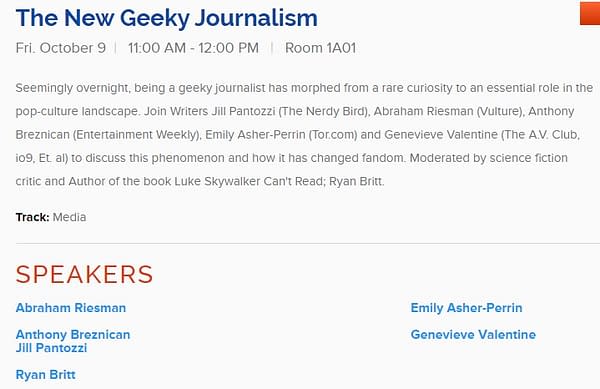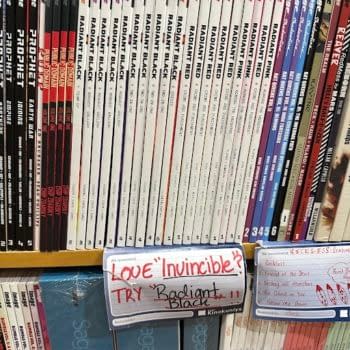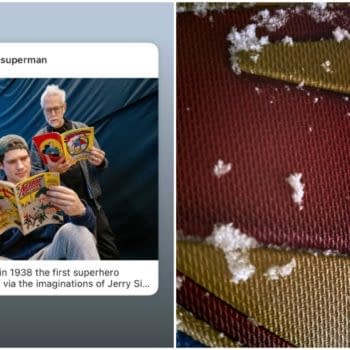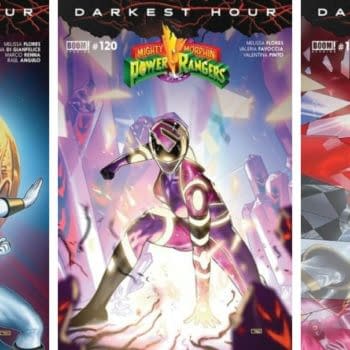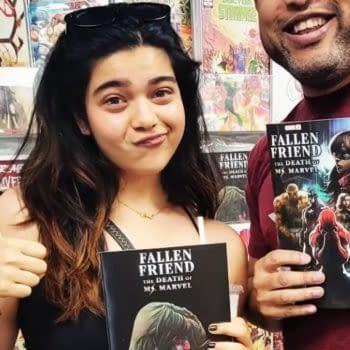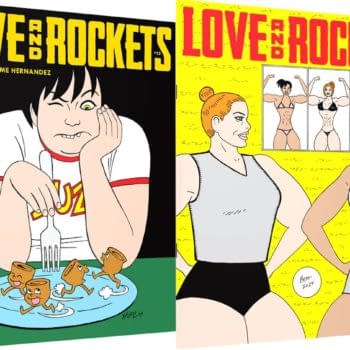Posted in: Comics, NYCC | Tagged: Comics, entertainment, geek journalism, NYCC
NYCC '15: An Anatomy Of Panel Disappointment
By Ray Flook
One of the things I love about New York Comic Con (NYCC)…and many other conventions…is their panel schedule because panels are probably the most important part of a convention. A strong programming schedule makes the difference between a "convention" and a glorified public relations events…it gives you opportunities to learn new things and personally/professionally grow as a "geek." Amateur writer/artist looking to get your work looked at and improved upon? Portfolio reviews, writers/artists panel discussions, and hands-on workshops. Just getting started in cosplaying? Cosplaying workshops, panels with famous cosplayers and cosplay contests. Huge fan of sci-fi television? Screenings, show cast panel interviews and fan group meet-ups.
With that said, I'm finding it necessary to take the time to write about a panel that I covered this year that was, at best, blandly mediocre; and at worst, uninspired and lacking in purpose. That's not something I write lightly, arbitrarily or for some kind of "shock value" because I know the hard work and good intentions that go into putting together a program for a conference/convention. Playing "devil's advocate," though…having programming that isn't properly structured; is lacking clear definition/meaning; and leaves those who attended none-the-wiser from the experience wastes the attendees time and sours them on the idea of attending panels. In fact, those are the three basic criteria I use when judging a panel: (1) structure; (2) defined/executed purpose; and (3) end-results. While some of the things I cover here may not seem that serious, I would ask that you look at it in its totality because most panels/programs usually don't fail because of one big thing but because of many little things.
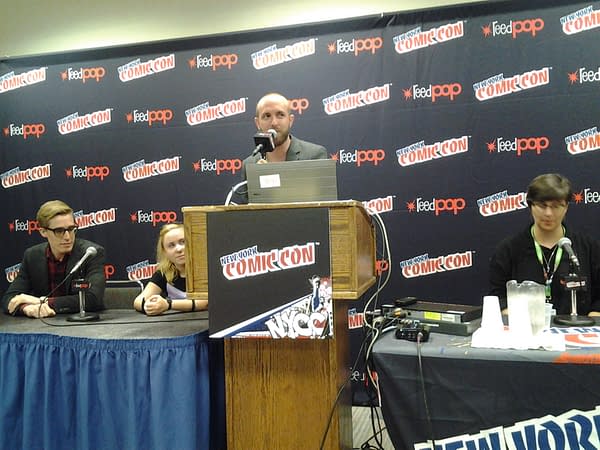
Structure: The way it usually works with these types of panels is that you're given an hour but your program should only run about forty-five minutes so that there's fifteen minutes to get people out of the room and for the Javits crew to turn-over the room for the next panel. Due to late/absent panelists, this panel started at 11:23 am…twenty-three minutes late. Starting the session that late meant one of two things: (1) the entire panel session would last only twenty-two minutes; or (2) run until 12:00 pm and impact the panel following this one. They chose to go with the second option…and still didn't end the session until 12:02 pm. This bothered me on a number of levels: it shows a certain level disrespect/disregard towards both those who may be needing the room after this event, and to the Javits crew who have to set-up the room for that next session; and to those in attendance who had to leave the session before it was over to make the next session on their schedule, missing out on the opportunity to ask the panelists questions. I understand that a million things can happen to delay a panelist (and props to Entertainment Weekly's Kevin P. Sullivan for stepping-in at the last minute), but at some point much earlier you need to start moving ahead with who you have and accommodate as others arrive.
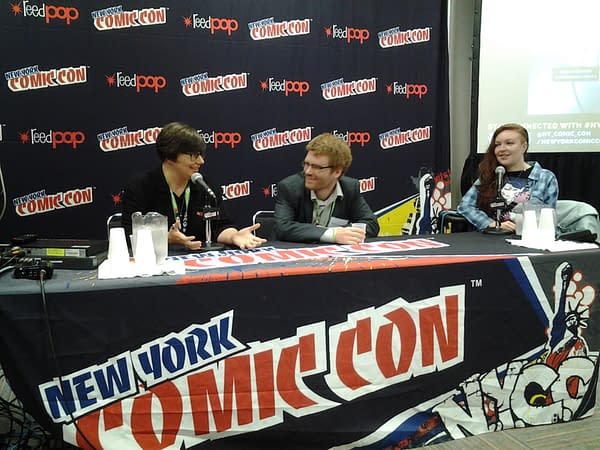
End Results: At this point, I feel like I would just be repeating myself: looking at the entirety of the panel, I'm not sure how anyone who is interested in going into "geek journalism" could've gotten anything of long-term substance out of that panel. I feel as if my time would've been better spent in the press lounge speaking to others while we charged our phones and tablets. I was excited when I saw this posted and signed-up to cover it because I was hoping this would be the start of a new convention track aimed at offering guidance and mentorship to up-and-coming pop culture/"geek" writers looking to have their voices heard. I still think that's something that should happen…but this wasn't the way to start it.
Ray Flook has been a contributing writer to Bleeding Cool since 2013. Make sure to follow him at @oldmangeek88, and you can find him on Instagram at @oldmangeek and on the web at: www.oldmangeek88. com


